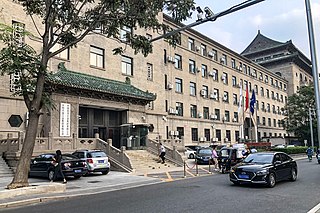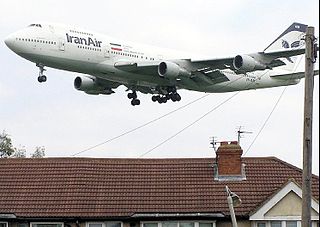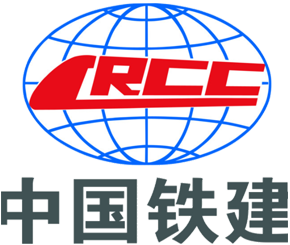
The Treaty on the Non-Proliferation of Nuclear Weapons, commonly known as the Non-Proliferation Treaty or NPT, is an international treaty intended to prevent the spread of nuclear weapons and weapons technology, to promote cooperation in the peaceful uses of nuclear energy, and to further the goal of achieving nuclear disarmament. Between 1965 and 1968, the treaty was negotiated by the Eighteen Nation Committee on Disarmament, a United Nations-sponsored organization based in Geneva, Switzerland. A central premise of the NPT is that NPT non-nuclear-weapon states agree not to acquire nuclear weapons and the NPT nuclear-weapon states in exchange agree to share the benefits of peaceful nuclear technology.

Bechtel Corporation is an American engineering, procurement, construction, and project management company founded in San Francisco, California in 1898, and headquartered in Reston, Virginia. As of 2022, the Engineering News-Record ranked Bechtel as the second largest construction company in the United States, following Turner Construction.

China North Industries Group Corporation Limited, doing business internationally as Norinco Group, and known within China as China Ordnance Industries Group Corporation Limited, is a Chinese state-owned defense corporation that manufactures commercial and military products. Norinco Group is one of the world's largest defense contractors.

United States sanctions are financial and trade restrictions imposed against individuals, entities, and jurisdictions whose actions contradict U.S. foreign policy or national security goals. Financial sanctions are primarily administered by the U.S. Department of the Treasury's Office of Foreign Assets Control (OFAC), while export controls are primarily administered by the U.S. Department of Commerce's Bureau of Industry and Security (BIS).

JSC Rosoboronexport is the sole state intermediary agency for Russia's exports/imports of defense-related and dual use products, technologies and services. The Rosoboronexport Federal State Unitary Enterprise (FSUE) was set up in 2000 by a Decree of the President of Russia and is charged with implementation of the policy of the State in the area of military-technical cooperation between Russia and foreign countries. In 2007, the enterprise was re-registered as Rosoboronexport Open joint-stock company (OJSC). In 2011, Rostekhnologii non-profit state corporation acquired 100% of Rosoboronexport OJSC.
Iran's military industry manufactures and exports various types of arms and military equipment. Iran's military industry, under the command of Iran's Ministry of Defence and Armed Forces Logistics, is composed of the following main components:
An arms embargo is a restriction or a set of sanctions that applies either solely to weaponry or also to "dual-use technology." An arms embargo may serve one or more purposes:

The United States has since 1979 applied various economic, trade, scientific and military sanctions against Iran. United States economic sanctions are administered by the Office of Foreign Assets Control (OFAC), an agency of the United States Department of the Treasury. As of 2017, United States sanctions against Iran include an embargo on dealings with the country by the United States, and a ban on selling aircraft and repair parts to Iranian aviation companies.

MAPNA Group is a group of Iranian companies involved in development and execution of thermal and renewable power plants, oil & gas, railway transportation and other industrial projects as well as manufacturing main equipment including gas and steam turbines, electrical generator, turbine blade and vane, HRSG and conventional boilers, electric and control systems, gas compressor, locomotive and other pertinent equipment.

China Railway Construction Corporation Limited is a listed construction enterprise based in Beijing, China, that was the second largest construction and engineering company in the world by revenue in 2014.
The Iran, North Korea, Syria Nonproliferation Act (INKSNA), also known as the Iran Nonproliferation Act of 2000, is an act of the 109th United States Congress.
Hyundai Engineering Co., Ltd. or HEC is a company established in 1974. As a global engineering solutions firm that plays a leading role in the areas of plants, architecture, infrastructure and asset management, Hyundai Engineering is expanding into eco-friendly energy to build a sustainable future. In the area of plants, the company provides total solutions for front-end engineering design (FEED) as well as engineering, procurement and construction (EPC). In architecture, it handles business projects involving industrial facilities, ordinary architecture and housing. In infrastructure, it pursues projects involving smart cities and eco-friendly energy. Recently, it has been leading the way toward achieving carbon neutrality by aggressively researching and investing in technology for producing clean hydrogen and turning carbon dioxide into a resource.
SMC Corporation is a Japanese TOPIX Large 70 company founded in 1959 as Sintered Metal Corporation, which specializes in pneumatic control engineering to support industrial automation. SMC develops a broad range of control systems and equipment, such as directional control valves, actuators, and air line equipment, to support diverse applications. SMC's head office is located in Sotokanda, Chiyoda-ku, Tokyo, Japan. The company has a global engineering network, with technical facilities in the United States, Europe, and China, as well as Japan. Key production facilities are located in China and Singapore, and local production facilities are in United States, Mexico, Brazil, Europe, India, South Korea, and Australia.
SEPCO Electric Power Construction Corporation is a Chinese construction and engineering company that designs and builds power generation and transmission infrastructure. SEPCO1 (SEPCOI) and SEPCO2 are wholly owned subsidiaries.
Weihai International Economic & Technical Cooperative Co., Ltd. is a Chinese construction contractor that specializes in overseas construction and engineering projects. Based on international project revenue of $228.8 million in 2012, the company was listed among the 250 largest international contractors by the Engineering News-Record.
China Geo-Engineering Corporation is a Chinese construction company that ranks in the Engineering News Record annual compilation of construction firms as one of the 250 largest international contractors by sales, with international project revenue of $665.6 million in 2012.
China Jiangxi International Economic and Technical Cooperation Co., Ltd is a Chinese construction and engineering company that operates in many countries of Anglophone Africa. By sales revenue it is a top international contractor, ranking in 2013 among the 250 largest construction companies by international project value, with $392.3 in revenue.
U.S. foreign policy during the presidency of Donald Trump (2017–2021) was noted for its unpredictability and reneging on prior international commitments, upending diplomatic conventions, embracing political and economic brinkmanship with most adversaries, and stronger relations with traditional allies. Trump's "America First" policy pursued nationalist foreign policy objectives and prioritized bilateral relations over multinational agreements. As president, Trump described himself as a nationalist while espousing views that have been characterized as isolationist, non-interventionist, and protectionist, although the "isolationist" label has been disputed, including by Trump himself, and periods of his political career have been described by the alternative term “semi-isolationist.” He personally praised some populist, neo-nationalist, illiberal, and authoritarian governments, while antagonizing others, even as administration diplomats nominally continued to pursue pro-democracy ideals abroad.

The Countering America's Adversaries Through Sanctions Act (CAATSA) is a United States federal law that imposed sanctions on Iran, North Korea, and Russia. The bill was passed by the Senate on July 27, 2017, 98–2, after it passed the House 419–3. It was signed into law on August 2, 2017, by President Donald Trump, who nevertheless believed that the legislation was "seriously flawed".
China National Electric Engineering Co. Ltd. is a state-owned engineering company. A specialized engineering services contractor; the company focuses in the areas of Engineering, Procurement & Construction (EPC), Consultation, Operation & Maintenance and Rehabilitation in infrastructural and clean energy solutions for various industrial projects. CNEEC is an international engineering company, which has been listed in the top 225 International Contractors by USA's ENR.








